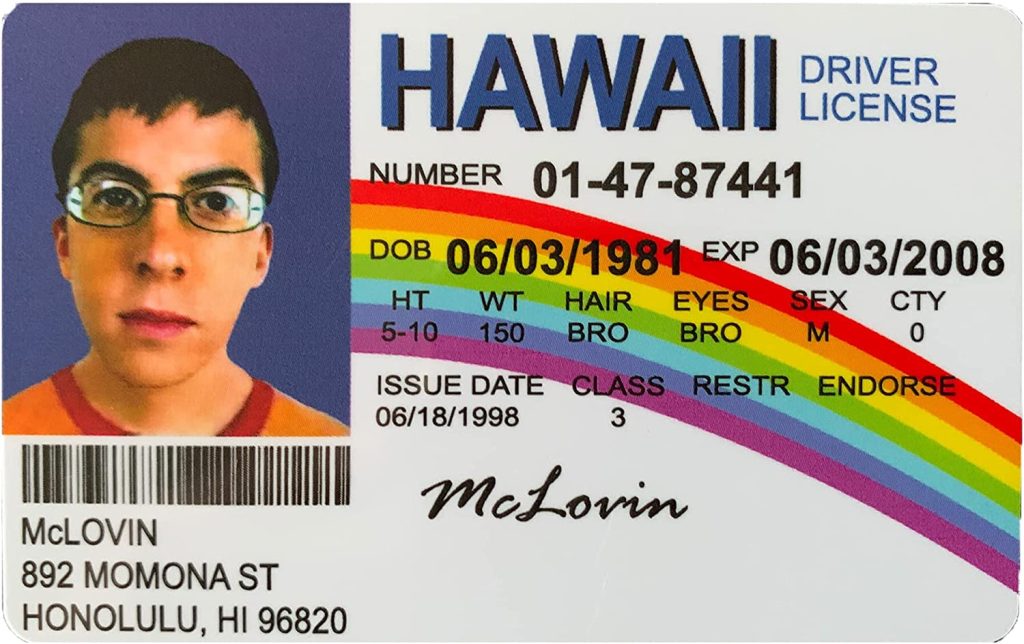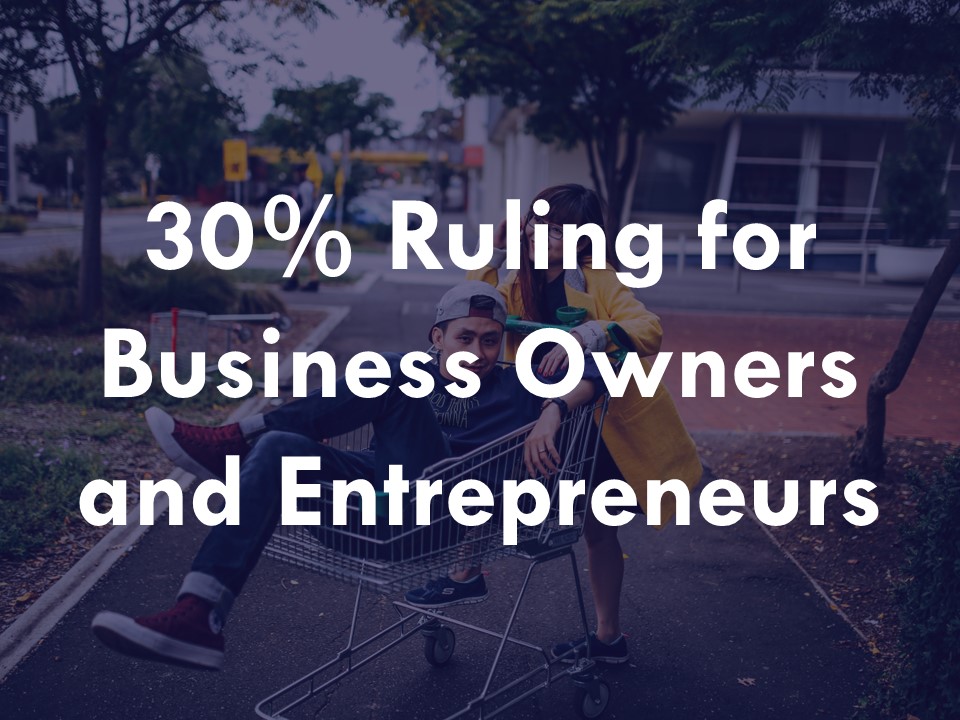If you are reading this, chances are that you consider an expansion or relocation to the Netherlands. Exciting times! The Netherlands has a proven track record being at the top of many a business climate list, and the standard of living gets high grades equally. As tax guys, we naturally gravitate towards supporting those ‘business and life pitches’ from a fiscal angle as well, cementing the proposition. Now there are ample articles about the corporate side of things [including our own- see below!]. But what about yourself – the business owner?
The 30% Ruling: A Tax Incentive for Inbound Expats
One of the fiscal cornerstones of the Netherlands’ attractiveness as a relo-destination is the 30% Ruling. As the Dutch Government’s Expat Center describes it:
The 30% Ruling is available to employees who are recruited from outside the Netherlands to work here temporarily. If they satisfy conditions for the 30% Ruling, they are exempt from paying tax on up to 30% of their salary. This government measure helps them cover the additional costs they incur from working in the Netherlands, such as travel expenses, additional housing costs and day-to-day expenses.
This text block contains two focal points for this read: the 30% Ruling is an attractive benefit for inbound expats, but one of the conditions is being ‘recruited from abroad’. So how does a business owner or entrepreneur meet that requirement? Here’s our carefully designed & tested how-to!

First: the 30% Ruling’s Characteristics.
The 30% Ruling is a facility that applies per granted request with the Dutch Tax Authorities. As stated, it’s 1037 origins are that of a ‘compensation for extraterritorial costs’ that expats experienced when moving house -and perhaps not family- internationally, and perhaps maintaining a cross border lifestyle. As time proceeded, the ruling has grown into more of a selling point to entice ‘scarce talent’ to Go Dutch. Mind you: near every EU state has a similar or competing facility – we are in competition for the best brains, after all.
The main characteristics of ours, in brief:
- The 30% Ruling exempts 30% of wages from wage tax, as well as all foreign shareholdings and savings from Dutch income tax.
- During the term of the 30% facility, you can opt for the ‘partial foreign taxpayer status’ for Dutch income tax purposes. By opting for this status, only income from employment and sole proprietorship is taxed as a Dutch resident taxpayer.
- For substantial share holdings (>5%) and income from savings (Dutch wealth tax), the employee is taxed as a non-resident taxpayer. As a result, only (i) any real estate in NL, (ii) rights to real estate in the Netherlands and (iii) profit rights of Dutch companies need to be declared.
- The employer can reimburse the international school fees of the children of employees tax-free, the removal costs and costs for transferring the estate can be provided tax-free up to €7,750.
- Foreign driving licenses can be exchanged for a Dutch driving license more easily.
- The ruling applies for max. 5 years
Then: the 30% Ruling’s Requirements
In order to be eligible for the 30% ruling, you have to meet the following criteria:
- You move in from a place of residence that is at least 150km from the Dutch border;
- You’ve secured employment at a Dutch employer (who is the wage tax withholding agent), which can equally be your own business (i.e: they must incur Dutch taxable wages), and;
- Your skills are ‘scarce’ in the Netherlands, which is evidenced not by a set list as in some states, but by you generating a wage in excess of € 56,381/year
(the ‘threshold’ – € 4,698/mo, but lowered to €3,572 for individuals <30 years of age).

Add: the European Blue Card – the Permit to Stay
Now the 30% Ruling is a great tax facility, but as a business owner or entrepreneur, you’ll equally need to address the immigrations-related ‘way in’; the permit to stay. And for business owners or entrepreneurs not from the EU, we recommend the European Blue Card.
Some background: In March of 2000, the European council agreed to work towards making the EU ‘the most competitive knowledge economy in the world’. And in order to achieve that, attracting the best people to Europe is of course vital. And then to facilitate the attraction of said talent, the EU implemented a new residency permit that would allow free movement in the Schengen area, and a simplified application procedure. This is: the European Blue Card.
Who does it apply to?
- This is a permit a for employees of a Dutch employer, moving to the Netherlands to live and work here for more than 12 months (which should follow from the employment contract).
- The employee must perform highly qualified work. Highly qualified work is work that requires a higher education (bachelor’s degree and up to be credited by the IDW)
- Minimum gross salary of per month € 5,670.
When does it end?
- If the employment in the Netherlands end (with a margin of 3 months), or, if that comes first:
- After 4 years of living in NL
- There is a possibility of extending the EU Blue Card after these 4 years if the employment is ongoing.
What is the procedure?
- Only the employer can apply for this residence permit in cooperation with the employee. The employer applies for the provisional residence permit (‘mvv’) and the residence permit at the same time (only if required and this is evaluated based on the nationality of the individual employee).
- Pay the government’s fees of € 345.
- Get the application approved within 90 days after filing the application.
- Start working and get settled in the Netherlands!

How do we tie these two together to secure equal treatment for business owners and entrepreneurs, and employees?
At Archipel ,we have organically developped our ‘best practice’ in advising foreign entrepreneurs and business owners on their relo to the Netherlands. The combination of the EU Blue Card’s freedom of European movement and the domestic tax benefits of the 30% Ruling make for an attractive and free setup.
How?
If you want to set up your business in the Netherlands and make use of this combined facility, your best bet is to follow our 4-step plan as detailed below, which we base on the example of a Canadian national wishing to set up their business in the Netherlands and relocate here as well.
Note that granting the Blue Card and the 30% facility is in essence down to a decision [albeit a clearly parametered one] by the Dutch authorities, and that we therefore cannot give any guarantees on outcomes. However, the authorities are always happy to look for ways to facilitate the attraction of valuable businesses to the Netherlands – as we remain on a path to the innovative economy and can use all hands on deck.

How can we assist?
During this whole process, Archipel can be the quarterback for your tax and immigration related processes. We have a wide network of related partner-firms who can take care of your needs in the realm of accounting, payroll, law, real-estate, relocation and anything related.
We can assist you in setting up your business in the Netherlands and making sure all the tax registrations are in order in respect of corporate tax, wage tax, vat and your personal income tax obligations (after arrival in the Netherlands). Besides this, we have experience in dealing with the Dutch migration authorities to ensure the right permit is granted and the application comes through correctly. And naturally: we are super interested in becoming your business house tax advisor.
Looking for exactly the partner to make your set-up in the Netherlands take off? Schedule a call on the house through the Calendly link below!





